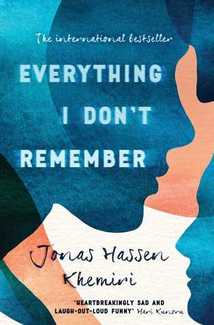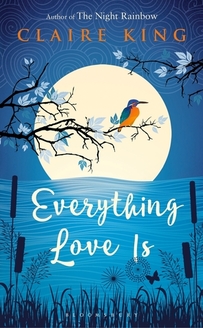Opening with very short (single sentence developing to single paragraph) fragments from the interview with his grandmother’s neighbour interspersed with those from Samuel’s best friend, Vandad, the novel is initially challenging. But I was soon seduced by the mixture of humour and deft observation to adjust to the style. A particular pleasure of the structure was in the unfolding of opposing perspectives on Samuel’s life and character, particularly in the middle section contrasting the accounts of Vandad and Samuel’s girlfriend, Laide. I also appreciated the stories of the migrants and asylum seekers who Samuel and Laide try to help.
I enjoyed the ride sufficiently not to mind that I was no clearer by the end why – as opposed to how – Samuel died, although I was less satisfied with the undeveloped hints about the writer’s own backstory (perhaps because I take it as given that our own biographies influence the stories we choose to pursue). Nevertheless, I found this an engaging exploration of memory, friendship, migration and race, and the way we view the world through our idiosyncratic filters. Translated from Swedish by Rachel Willson-Broyles and published by Scribner, I won my copy of Everything I Don’t Remember on Isabel Costello’s Literary Sofa. Thanks to all!
#############################################################
Baptiste Molino was born on a train approaching Toulouse; although it’s May 1968, his story is distanced from the student riots of that time. Now a grown man living alone on a houseboat on the outskirts of that city, he becomes caught up, through his friendship with Sophie, the barmaid in the pub where he eats each evening, in the new wave of youth protest, this time with racist undertones. But that’s just a subplot in a larger story of an unexpected and selfless love between Baptiste and another of the characters, whose identity, as well as the circumstances in which the love develops, is only gradually revealed.
Having enjoyed Claire King’s debut, I looked forward to her second, Everything Love Is. Forewarned of the potential frustrations of the structure, in which the identity of one of the two first-person narrators is withheld, in this post by Ali Bacon, I rather enjoyed wondering about the mysterious “Chouette” and how their relationship might have progressed from the one (of two strong contenders) outlined by Baptiste in his chapters. Unfortunately, what I didn’t anticipate – although perhaps I should have when the blurb described him as having “devoted his life to other people’s happiness” (but trust me, that description doesn’t tally with my concept of a therapist) – was my scepticism about the character of Baptiste himself. While some of his many boundary violations make sense in terms of the subsequent reveal, others do not (and, respecting the author’s wish for her novel to be read without spoilers, I can’t go into detail). I also failed to be convinced that a man, nurtured since birth by loving parents, although carrying the uncertainty of the identity of his birth mother, should have turned his back on the prospect of an adult loving and sexual relationship for himself.
These reservations didn’t stop me appreciating the poetry of the language, including Sophie’s insight into the way Baptiste views the world (p47):
When most creatures look down at the canal, they see themselves reflected within it. But not the kingfisher. He sees straight through the surface to everything that lies beneath. That’s what you do with people. Most of us only ever see the surface of others, or else our own reflection. But for you it’s as though the surface isn’t there. That’s how you help people.
Thanks to Bloomsbury Circus for my review copy.























 RSS Feed
RSS Feed





















